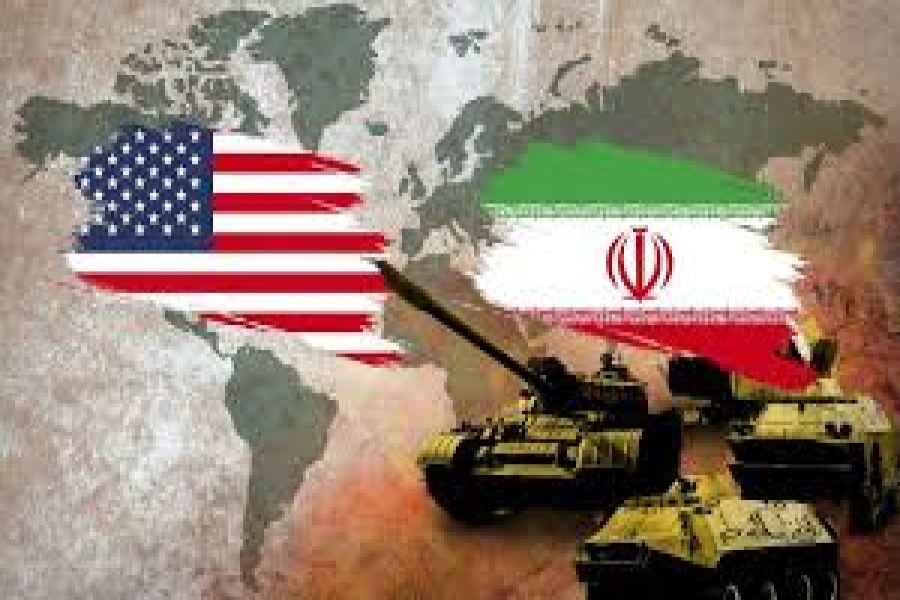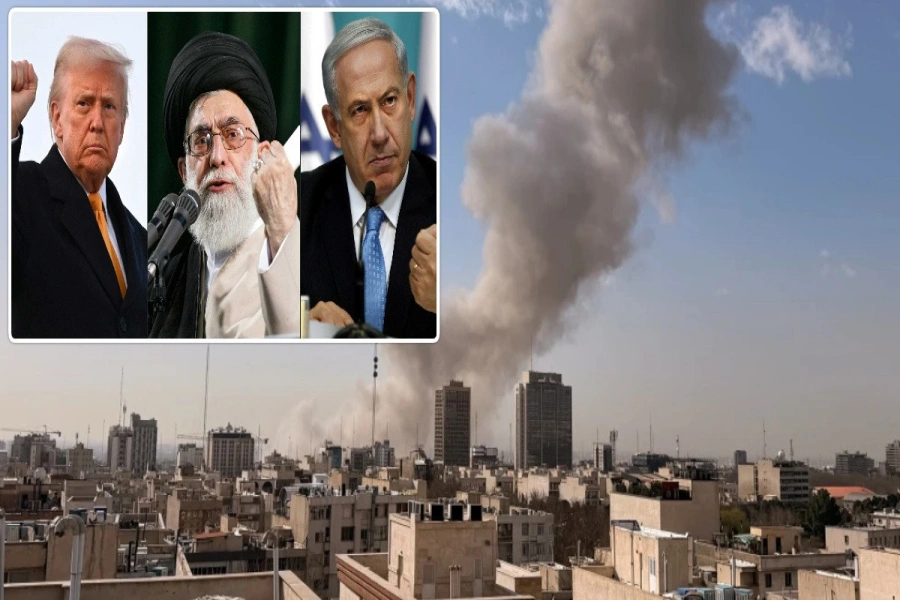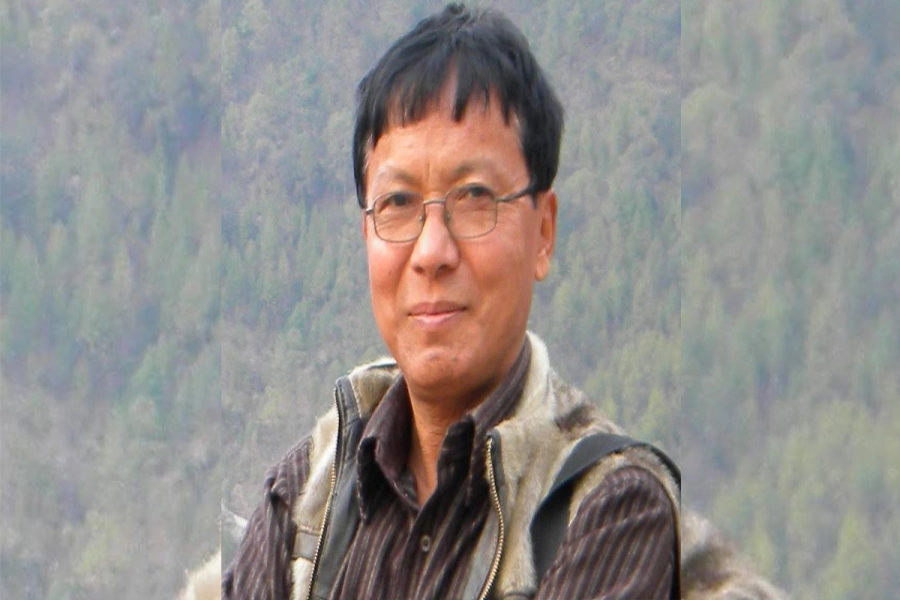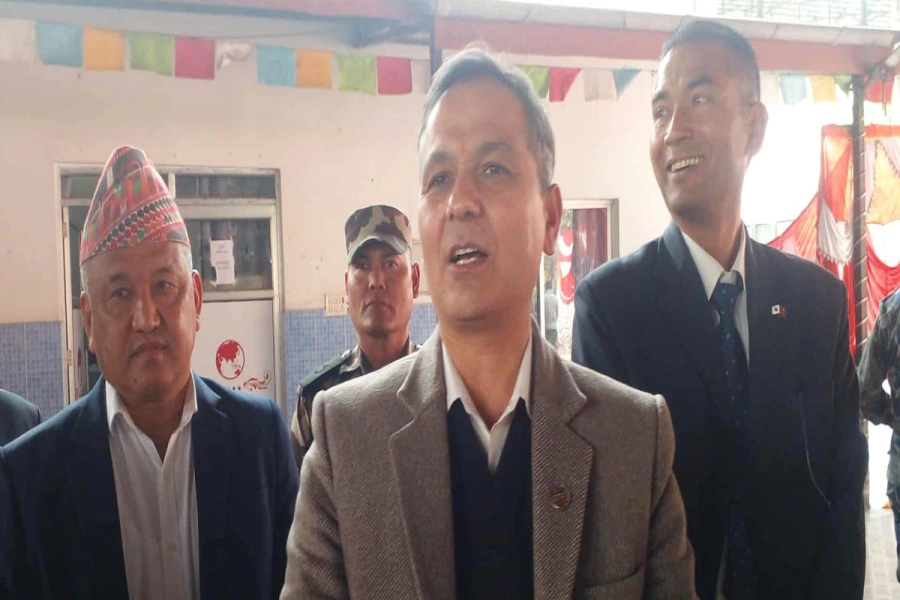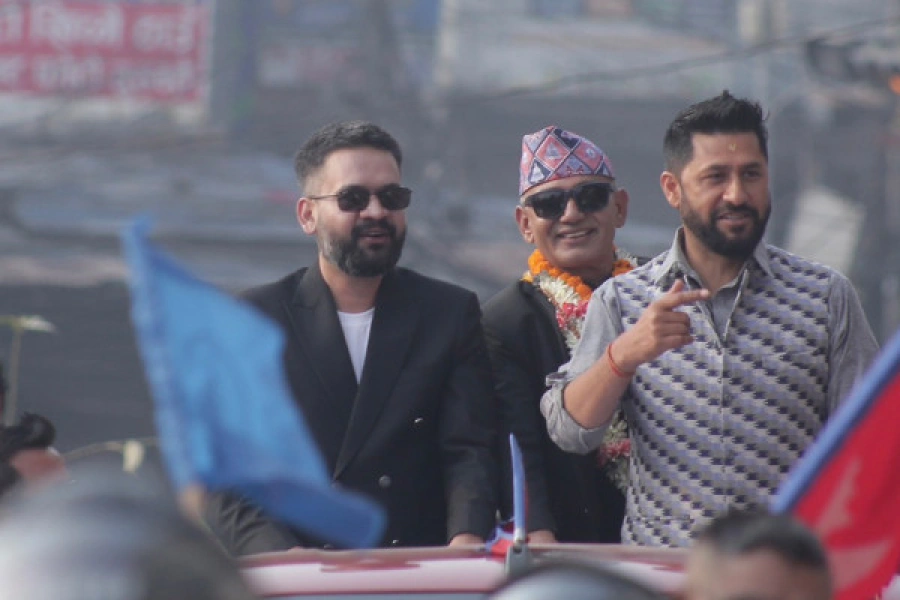Ever since the government of Pushpa Kamal Dahal registered a constitution amendment bill in parliament on November 29th, 2016, the main opposition, CPN-UML, has been consistently opposing the rastraghati (anti-national) bill and asking for its withdrawal. But which provisions in the bill are anti-national? And what is the way out of the current political and constitutional deadlock? UML Vice-chairman Bhim Rawal, who has also served as deputy prime minister and home minister in previous governments, shared his insights with Biswas Baral and Mahabir Paudyal.
You have been saying that the constitution amendment bill is rastraghati. What makes you say so?
Isn’t it self-evident? When we were discussing the provisions of this constitution around two years ago, the three big parties had agreed some agendas were not in the interest of Nepal and Nepalis. But the current government wants to incorporate precisely these agendas in the new constitution through the amendment bill. There were four key points.
One, the three parties had agreed that Nepal can develop into a prosperous nation only when the linkages of plains, hills and mountains were kept intact. We agreed that our diversity and interdependence of hills, plains and mountains do not allow us to separate one region from the other two while we go about delineating federal provinces. Today, the government and Madheshi Morcha say the Tarai must be separated from hills at any cost.
Two, we had agreed that there would be no demarcations along strict ethnic lines; that separation and segregation of one ethnic community from others would only weaken the fabric of our society. But now these forces want province demarcation on ethnicity basis, which Nepal’s unique social structure and demography does not allow.
Three, we had agreed that the citizenship provisions we were discussing were already among the most liberal in South Asia and so there was no room for more compromise.
But now they want to allow even naturalized citizens to reach top political posts such as prime minister, president and chief minister. It seems like Morcha leaders want to induct naturalized citizens into highest state posts within the shortest possible time after they acquire citizenship.
Four, we had decided that there should be some kind of equality among provinces in a federal system and thus lopsided provinces should not be created. A province may be richer or poorer compared to others in terms of their economy and development. But all provinces are equal on other matters. This is why we had agreed for equal representation in National Assembly from each province. We had discussed two alternatives: equal representation from all provinces or total proportional representation in National Assembly.
Finally, we settled on equal representation in National Assembly or the upper chamber and mixed electoral system (FPTP and proportional system) in the lower chamber or the parliament. The amendment bill wants to change this. This is why I say it is not in our national interest.
You brought up the citizenship issue. But there really does not seem to be any meaningful difference in the citizenship provisions of the new constitution and the kind of changes that the amendment bill seeks.
If so why are the citizenship provisions being amended? The ruling Maoist and Congress were actually bent on amending laws so as to grant naturalized citizens an immediate right to reach the highest political posts. But people around the country, down in the Madhesh and up in the hills, as well as we in the opposition are opposed to this measure.
What do we make of your party’s opposition to the proposed amendment on language issue?
You have to look at the language issue in the backdrop of the citizenship issue. The government wants to tamper with citizenship as well as language provisions. Earlier, it sought to recognize Hindi as a language of official business. We strongly opposed it and now there is no mention in the amendment bill of Hindi as a national language of Nepal.
But through the proposed amendment the government is trying to leave the back door open for the entry of Hindi as a language of official business and finally as a national language in the future.
But Hindi is spoken and understood by the majority of people in Nepal. So what’s wrong in recognizing it? After all, the Indian constitution also recognizes Nepali language.
Comparing the recognition of Nepali language in the Indian constitution with the government’s intent to make Hindi the language of official use is like comparing chalk and cheese. Nepali language is mother tongue of Indian citizens in several parts of India. But Hindi is not the mother tongue of a single community in Nepal. Maithili, Bhiojpuri, Abadhi and Tharu are mother tongues in Madhesh. If you say Hindi is spoken in Nepal and therefore it should be recognized as a national language, English is also spoken here.
This does not make English our national language. The question is not how many people speak a particular language. You are free to speak in Hindi if you want to. But for a language to be recognized as a national language or language of official business, it needs to be your mother tongue. And Hindi is no one’s mother tongue in Nepal.
Do you buy the argument of top Madheshi leaders that the failure of the bill could have disastrous consequences and it will embolden secessionist elements in Tarai plains?
The opposite is true. It is the passage of this amendment bill that will create a fertile ground for secessionist elements. The bill intends to hive off Madhesh from hilly regions and sow discord between peoples of Madhesh and hill origins. As for the active secessionist groups, if the government is committed to abiding by its legal and constitutional obligations and to enforcing rule of law, secessionist elements will be nipped in the bud. In fact, this government is deliberately ignoring secessionist elements in Tarai. Some people are openly asking for Madhesh as a separate country but the government looks on helplessly. This government allows secessionists to walk free. If the government quickly announces election dates and commits to implementing this constitution, there will be no space for secessionists.
It often seems that even some mainstream Madheshi leaders are in favor of secession. This is not speculation. We say so based on facts. Why are leaders of Province 2 bent on separating Tarai districts from Province 5 despite strong opposition from the people there? Various armed groups in Tarai are working for secession. Other underground outfits issue statements from outside the country, also demanding secession. If the constitution is not implemented and rule of law not maintained such elements will be further emboldened.
Why media must be free

Are you suggesting that those who advocate secession should be suppressed with brute force?
I am not talking about brute force here. An outfit is openly promoting a separate state, a separate national flag and a separate national anthem within Nepal. Which civilized state allows such activities in its territory? So it is not a question of suppression. It has more to do with maintaining rule of law, respecting the constitution, protecting the country’s sovereignty and territorial integrity. The first duty of the government is to protect the life and liberty of the people and then to protect the state.
Madheshi forces have also said that they will boycott future elections if the amendment bill is rejected in parliamentary voting.
No political party that believes in democracy can reject elections. This constitution was passed with the approval of more than 90 percent Constituent Assembly members. The parties that believe in democracy should thus respect this constitution and conduct themselves accordingly. If a party does not accept this constitution, there is nothing we can do about it. Let me take you back to the eve of the second Constituent Assembly elections in 2013. The Mohan Baidya-led Maoist party had decided to boycott and disrupt elections. We had tried to bring them on board but they did not agree. Despite their objection we went ahead with the elections and elections were successfully conducted.
I want to tell Madheshi parties that if they believe their agenda is both just and popular, they should go to the people with it. On the one hand Madheshi leaders claim to be messiahs of Madhesh and claim to champion the cause of common Madheshis. But on the other they are not ready to go to the same people with their agenda. This is self-contradictory. They should go to the election and if they get majority votes, they can amend the constitution pretty much how they like. Nowhere in the world has constitution amendment been considered without a fresh mandate to do so.
Critics allege UML’s idea of nationalism is too narrow and divisive for modern-day Nepal. How do you respond?
This is a ridiculous allegation. Patriotism and nationalism cannot be defined arbitrarily.
When we talk about nationalism, our focus is on serving Nepali people and protecting Nepali territory, sovereignty, dignity and independence. We want our international relations to be based on provisions of the UN Charter, principles of Panchaseel and established international laws and norms practiced in the civilized nations. How does this make our nationalism parochial? How will it alienate one community from others?
I don’t understand how putting the interest of Nepali people and Nepal first antagonizes Madheshi people. We always talk about the prosperity of the people and the country, maximum utilization of our resources and interdependence between hill, mountains and plains. It is also said that UML’s stand is inimical to the interest of India. But how? India, China, Russia or the United States, each is concerned with pursuing its national interests and policies for the betterment of its people. If we do the same in Nepal, how can this be interpreted as going against a particular country or community? Those who are accusing us of promoting a narrow idea of nationalism, in fact, intend to weaken Nepal and sow divisions among its people and thereby create a threat to its very existence.
Will it be right to say that your idea of sovereignty is more territorial than centered on the people?
Our party strongly believes in people’s sovereignty. When we make a case for sovereignty of the country, we are talking about protecting both the rights of the people as well as the interests of the country. This is what every nation-state does. If you think UML is talking only about territory and not about the rights of the people, you are wrong. But tell me, if the country is not protected, if the national integrity is not maintained, how can the rights of the people be protected? Alternately, if the rights of the people are not protected how can you protect the territory?
In your reading what does a common Madheshi want from this constitution and from Nepal?
A common Madheshi wants employment, infrastructure development, industrialization and modernization of agriculture. An overwhelming majority of Madheshis are patriots. But those who go to foreign embassies to chalk out their political agenda are betraying Madheshi people as well as the country. Madheshis want political stability and peace. They want to work and live together with hill and mountain communities.
Leaders of Madheshi Morcha do not truly represent these aspirations of Madheshi people. When parts of Madhesh are inundated and people are rendered homeless, when no-man’s land and lands of Madheshi people are encroached upon, they do not speak a word against it. But UML always does.
You seem to be hinting that the Madheshi parties represent the interest of foreigners.
This had become amply clear after the economic blockade imposed by India last year. Those were difficult times for Nepalis rendered homeless by the devastating earthquakes.
But Madheshi Morcha supported the blockade. Various media reports have made it clear who they are influenced by. Nepalis are also clear on this. The external influence was seen during constitution making, constitution promulgation and toppling of governments post-constitution. Facts speak for themselves.
Your party is resolute not to let the amendment bill pass. But ruling coalition leaders seem very confident that they have the required votes.
You should ask the coalition leaders what gives them this confidence when more than one-thirds MPs are against the bill. UML will never back down from its stand on national unity, national interest and sovereignty. The opposition forces will thus keep our unity intact and strongly oppose the bill. We have in fact been opposing the bill since the start and asking the government to withdraw it in the interest of Nepal and Nepali people.
Election is UML’s focus right now. But what is your party doing to ensure timely polls?
We have been repeatedly asking Prime Minister Pushpa Kamal Dahal to announce the dates for three sets of elections within the specified constitutional timeframe. He promises with us to immediately announce election dates but he never does so in reality.
Election is the bedrock of democracy. If some party refuses to face the election that means they do not believe in democratic system.
This is a caretaker government and its main responsibility is to implement the constitution by holding elections on time. But it is instead evading elections. The government should stop playing tricks with people. But we will continue to exert pressure on the government to expedite the election process.



